Book Review: "Effective DevOps" by Jennifer Davis and Ryn Daniels.
Enter the realm of "Effective DevOps," a book that promises not just theoretical concepts but practical insights into navigating the tumultuous waters of organizational dysfunction. The authors, Jennifer Davis and Ryn Daniels, bring to the table strategies that are not about quick fixes but foster a culture of collaboration and innovation. They emphasize the human factors, encouraging a shift from reactive measures to a proactive and holistic approach to challenges in the DevOps environment.
In a world where web companies grapple with unpredictable website failures and overburdened teams, the essence of DevOps becomes a beacon of hope. The chaotic scenes of stretched teams, looming disasters, and the constant firefighting modes in organizations underscore the urgency for a transformative strategy.
Book Organization and Structure
"Effective DevOps" is meticulously organized, ensuring a flow that resonates with both beginners and seasoned professionals.
The book is segmented into discernible parts, each focusing on critical aspects of DevOps, such as Collaboration, Affinity, Tools, and Scaling. This thoughtful categorization allows readers to navigate through the book with ease, choosing sections that align with their immediate needs or areas of interest.
Unlike conventional reads, "Effective DevOps" offers flexibility, allowing readers to embark on a non-linear journey through its enriching content. It embodies the spirit of a personalized adventure, where each reader can carve out a unique path of exploration and learning.
Defining Effective DevOps
The book dives deep into unraveling the essence of effective DevOps. It distinguishes between merely doing things right and doing the right things, a subtle yet profound difference.
The authors, Jennifer Davis and Ryn Daniels, don’t just hand out a universal solution but rather equip readers with the wisdom to discern what practices resonate with their unique organizational needs and challenges.
They emphasize the adaptability of DevOps practices, underscoring that strategies successful in one context may not necessarily transpose seamlessly into another. The book nurtures a culture of learning and experimentation, encouraging organizations to tailor DevOps practices that align with their specific operational landscapes and objectives.
Busting DevOps Myths
The book takes a moment to demystify some prevalent misconceptions about DevOps. It clarifies that DevOps isn’t confined to the realms of developers and system administrators, nor is it exclusive to web startups.
The authors debunk the notion of a one-size-fits-all approach to DevOps, advocating for a more nuanced, adaptable implementation that resonates with an organization's unique needs and challenges. They also disentangle DevOps from being solely about tools and automation, emphasizing its broader cultural and collaborative dimensions.
This section is instrumental in clarifying what DevOps truly entails, paving the way for a more informed, effective adoption of its practices.
The Four Pillars of Effective DevOps
- Collaboration: The Heartbeat of DevOps
Collaboration is the lifeblood of DevOps, fostering an environment where ideas flow freely and innovation thrives. It’s not just about working together but working together effectively. In a collaborative environment, team members feel valued, ideas are respected, and collective wisdom is used to solve problems and innovate. Asynchronous code reviews, comprehensive documentation, and regular demonstrations of progress are some of the practices that enhance collaboration. By prioritizing collaboration, organizations align individual goals with team objectives, ensuring that everyone is moving in the same direction.
- Affinity: Building Strong Relationships
Affinity goes beyond mere collaboration, focusing on establishing and nurturing strong relationships between individuals, teams, and entire organizations. It’s about creating a sense of belonging and community where members feel supported and understood. Practices that enhance affinity include navigating challenges together, resolving conflicts constructively, and celebrating successes. A high level of affinity within a team fosters trust, encourages risk-taking, and facilitates innovation, driving an organization toward its objectives.
- Tools: Accelerators of Change
Tools are instrumental in implementing DevOps practices, acting as catalysts that drive organizational change. While tools alone don’t define DevOps, they are crucial in automating mundane tasks, enhancing productivity, and fostering collaboration and learning. The choice of tools should resonate with the organization’s culture and facilitate its objectives. Tools should be seen as enablers that, when wisely chosen and effectively utilized, can significantly enhance the DevOps practices within an organization.
- Scaling: Navigating Growth
Scaling is about managing and navigating an organization's growth effectively. It encompasses various aspects, from expanding customer bases to outpacing competitors. The focus is on ensuring that the organization’s growth is sustainable and that it can adapt to changing circumstances and evolving objectives. In the context of DevOps, scaling involves leveraging the principles and practices of DevOps to facilitate and manage organizational growth effectively.
Mindsets: Fixed vs. Growth
Mindsets play a pivotal role in how individuals and organizations approach challenges, learn, and evolve. The book delves into two types of mindsets identified by psychologist Carol S. Dweck: Fixed and Growth.
- Fixed Mindset: Individuals with a fixed mindset believe that abilities and intelligence are static. They avoid challenges, give up easily, and see effort as fruitless. They ignore useful feedback and feel threatened by the success of others, hindering personal and organizational growth.
- Growth Mindset: Contrarily, those with a growth mindset believe that abilities and intelligence can be developed. They embrace challenges, persist in the face of setbacks, and see effort as a pathway to mastery. They learn from criticism and find lessons and inspiration in the success of others.
Organizations, too, embody these mindsets, influencing their adaptability, resilience, and approach to challenges. A growth mindset fosters a culture of continuous improvement and innovation, which is essential for the successful implementation of DevOps practices.
Misconceptions
Effective DevOps doesn’t shy away from addressing common misconceptions that often plague the collaborative aspect of organizational cultures. One notable misconception is the stereotype of the unadaptable old sysadmin. The book challenges this, advocating for a reevaluation of such preconceived notions. Experience, paired with continuous learning, can be a powerful combination in the ever-evolving landscape of DevOps.
Another misconception tackled is the undue emphasis on technical brilliance at the expense of collaborative harmony. A technically brilliant individual with a lack of interpersonal skills can be detrimental to team dynamics and overall productivity. The book emphasizes the importance of a harmonious and respectful collaborative environment in fostering a successful DevOps culture.
Or check out our entire DevOps learning path:
.webp)
Conclusion: Wrapping Up the Review
"Effective DevOps" is a comprehensive guide that offers valuable insights and practical strategies for fostering a collaborative and effective DevOps culture. It emphasizes the human aspects, encouraging a shift in mindsets and organizational cultures to facilitate continuous improvement and innovation. The book is a valuable resource for anyone looking to understand, adopt, and implement DevOps practices in their organization, promoting a culture of collaboration, learning, and adaptation.
More on DevOps:
- How To Scale DevOps: People, Processes, and Platforms
- 4 DevOps Metrics You Need To Track Quality And Performance
- Top 15 DevOps Automation Tools You Should Learn in 2024
- 10 Essential DevOps Tools You Should Learn in 2024
- 17 DevOps Monitoring Tools to Learn in 2024
- Container Security Best Practices in DevOps Environments
- How to run Predictive Analytics In DevOps
- 6 DevOps Concepts Every DevOps Engineer Should Know
- 14 Top Skills Required for DevOps



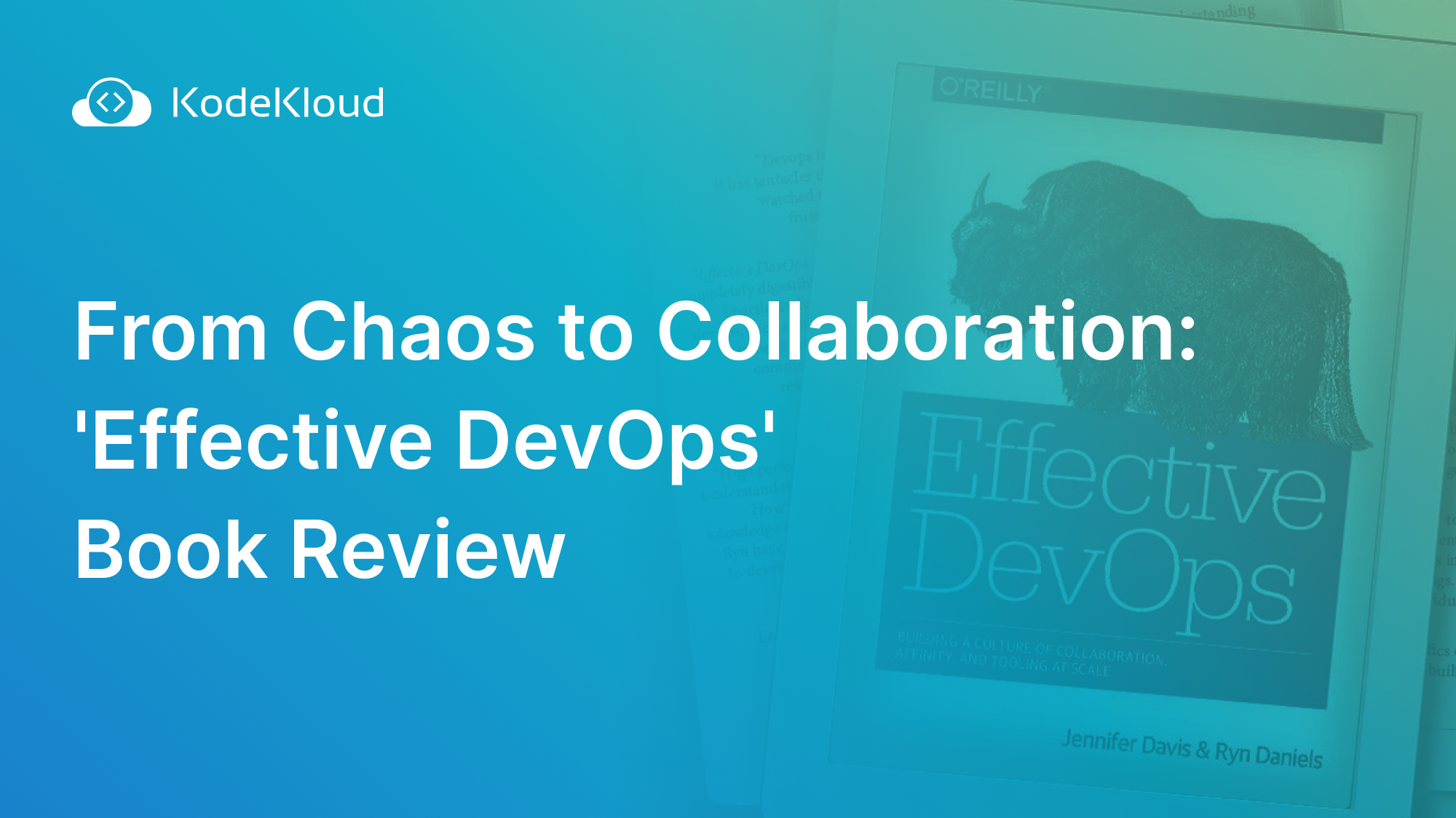

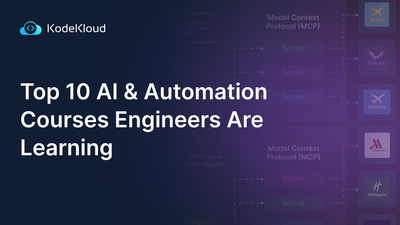

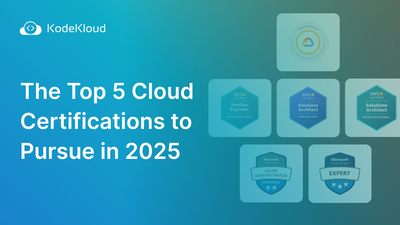
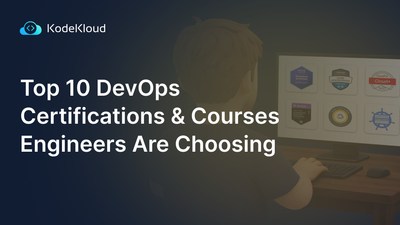

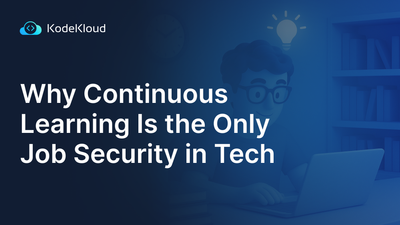
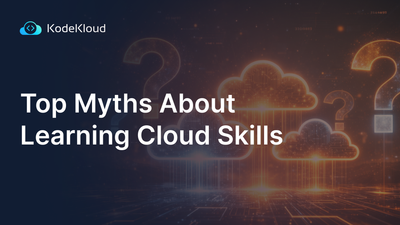
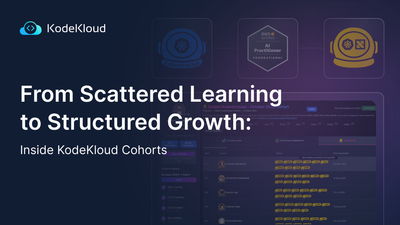
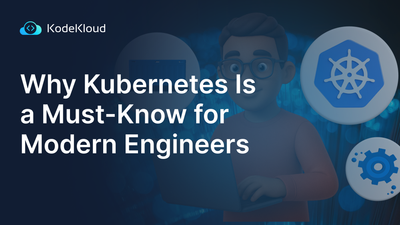



Discussion